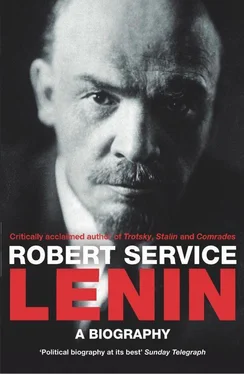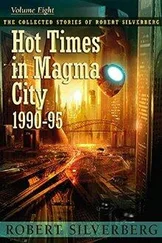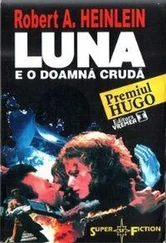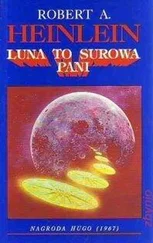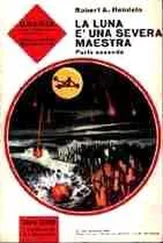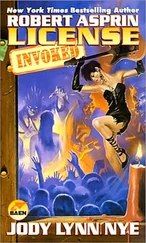Bolshevik Centre: shifts location, 1, 2; Bogdanov stays with, 3; dealings with Trotski, 4; rejects Bogdanov, 5; approach to Martov, 6; Party Central Committee orders closure of, 7
Bolshevik Military Organisation, 1, 2, 3
Bolshevik Party see Bolsheviks
Bolsheviks: L founds as party, 1, 2, 3; organisation, 4, 5, 6, 7; L keeps separate from Mensheviks, 8; hold 2nd and 3rd Party Congresses, 9, 10; L seeks reconciliation with Mensheviks, 11; at 4th Party Congress, 12; ignore First State Duma elections, 13; in later Duma elections, 14, 15, 16; and Party factionalism, 17, 18, 19, 20; at Prague party conference, 21; emigrant members, 22; leadership struggle, 23; legal status, 24; in Fourth Duma, 25, 26, 27; L seeks to control in war, 28; members arrested and tried in war, 29; and February 1917 revolution, 30; L redefines in April Theses , 31; L addresses in Petrograd (1917), 32; accept L’s 1917 programme, 33; enter soviets, 34, 35; L argues for flexibility of, 36; Secretariat, 37; as separate party, 38; attract new adherents, 39; propaganda, 40; readiness to assume power, 41; armed demonstration (1917), 42, 43; win popular support, 44; receive German government subsidy, 45, 46, 47, 48; members arrested by Provisional Government, 49; and L’s demands for insurrection, 50; form majorities in soviets, 51; and L’s plan for October Revolution, 52; L attempts to popularise, 53; and international socialist revolution, 54; fail in 1917 Constituent Assembly elections, 55; hostility to Constituent Assembly, 56; resist separate peace with Central Powers, 57; repressions and persecutions, 58; popular hostility to, 59; anti-capitalist policies, 60; renamed Russian Communist Party, 61; administrative capacities and methods, 62; supremacy, 63; resist L’s NEP proposals, 64; factional activity banned by L, 65; leaders’ overwork and health problems, 66; repress opposition, 67; split by Left Opposition at 13th Conference, 68; divisions and factions, 69; Gorbachëv abolishes political monopoly, 70
Conferences: 7th (1917)(‘April Conference’), 1; 9th (1920), 2, 3, 4; 10th (1921), 5, 6; 13th (1923–4), 7
Congresses: 3rd (1905), 1, 2, 3, 4; 4th (1906), 5, 6; 5th (1907), 7, 8; 6th (1917), 9; 7th (1918), 10, 11; 8th (1919), 12, 13; 10th (1921), 14; 12th (1923), 15
see also Russian Social-Democratic Labour Party
Bombon, Seine-et-Marne (France), 1
Bonch-Bruevich, Vladimir: carries L’s mother’s coffin, 1; visits graves of L’s mother and sister with L, 2; L stays with in Finland, 3; publishes L’s proclamation on October Revolution, 4; L stays with in Petrograd, 5; at 1917 Congress of Soviets, 6; L engages as personal assistant, 7; in Moscow with L, 8; and L’s injuries after assassination attempt, 9; persuades L to appear in film, 10; at L’s death, 11
Borchardt, Julius, 1
Borotbists: incorporated in Communist Party, 1
bourgeoisie: and formation of socialist state, 1, 2, 3; L’s hostility to, 4, 5, 6
Brest-Litovsk Treaty (1918): negotiated and signed, 1, 2, 3, 4, 5, 6, 7, 8, 9, 10, 11, 12, 13, 14, 15, 16; L abrogates, 17
Brezhnev, Leonid, 1
Bright, John, 1
Britain: in First World War, 1; intervenes in Civil War, 2; ends economic blockade of USSR, 3; Labour Party and socialism in, 4; Kamenev negotiates trade agreement with, 5, 6
British Museum: L studies in, 1, 2
Bronski, Mieczyslav G., 1
Brusilov, General Alexei, 1
Brussels: Second Party Congress in, 1
Büchner, Georg: Woyzeck , 1
Buckle, Henry, 1
Bukharin, Nikolai: reading, 1; co-founds Marxist journal, 2; on proposed socialist government,3; on world economy, 4; L defeats over separate 1918 peace, 5; at 7th Party Congress, 6; criticises Lenin’s economic caution, 7; warns L of personal dangers, 8; edits Pravda , 9; at First Comintern Congress, 10; criticises L for insufficient radicalism, 11; complains of Cheka conduct, 12; plays skittles with L, 13; in trade union discussion, 14; supports German Communist Party, 15; health problems, 16; promises tolerant treatment of Socialist-Revolutionaries and Mensheviks, 17; and L’s suicide threat, 18; L proposes excluding from Central Committee, 19; supports private foreign trade, 20; L abuses, 21; supports L on constitution question, 22; concern over L’s physical deterioration, 23; L’s relations with, 24; allows L to dictate to secretaries, 1; L considers as successor, 25; and L’s political testament, 26; predicts colonial trouble, 27; rebuffs Trotski’s Left Opposition, 28; visits sick L at Gorki, 29; present at L’s death and funeral, 30; memorialises L, 31; loses in opposition to Stalin, 32; The ABC of Communism , 32
Bulgakov, Sergei, 1
Bund (Jewish): and Second Party Congress, 1, 2; and suppression of Constituent Assembly, 3
Bureau of Committees of the Majority, 1
Burënin, Nikolai, 1
capitalism: in Russia, 1, 2, 3, 4, 5, 6, 7; L’s hostility to, 8, 9, 10, 11; L believes in collapse of, 12, 13, 14, 15; and imperialism, 16; Sovnarkom’s restrictions on, 17; L advocates bypassing, 18; and NEP, 19
Capri, 1, 2
Carlyle, Thomas, 1
Carr, Edward Hallett, 1
Catherine II (the Great), Empress of Russia, 1, 2, 3
Caucasus: peasant uprisings in, 1; see also Transcaucasian Soviet Federation censorship: L decrees, 2, 3
Chaikovski, Pëtr Ilich, 1
Chaliapin, Fëdor see Shalyapin, Fëdor
Chebanov, I.V., 1
Cheka (Extraordinary Commission): L creates, 1, 2, 3; founded, 4; repressions, 5, 6, 7, 8; in Mirbach crisis, 9; in Civil War, 10, 11; conduct, 12, 13; redesignated Main Political Administration (GPU), 14, 15; on alert following L’s death, 16
Chekhov, Anton, 1; ‘Ward No.6’, 2
Chernomazov, Miron, 1
Chernov, Osip, 1
Chernov, Viktor: founds Party of Socialist-Revolutionaries, 1, 2; in Paris, 3; self-questioning, 4 L criticises, 5; as Agriculture Minister in Provisional Government, 6; resigns from government, 7; barracked by Bolsheviks, 8; and closing of Constituent Assembly, 9
Chernyshevski, Nikolai: influence on L, 1, 2, 3; exile, 4; L writes to, 5; in St Petersburg, 6; L’s devotion to, 7, 8; work ethic, 9; What Is to be Done? , 10, 11, 12, 13
Chetvergova, Maria P., 1
Chicherin, Georgi, 1, 2
Chigorin, Mikhail I., 1
China, People’s Republic of, 1
Chkheidze, Nikolai, 1, 2, 3
Churchill, Sir Winston S., 1
Civil Code, 1
Civil War: L’s view of, 1, 2; breaks out, 3, 4; L’s part in, 5, 6; conduct of, 7, 8, 9, 10; Red Army’s victory in, 11, 12, 13
Clausewitz, Karl von, 1; On War , 2
Cobden, Richard, 1
Cohen, Stephen, 1
collective farms, 1
Comintern (Third International): formed, 1, 2, 3; builds communist parties in Europe, 4; L warns of provoking anti-communist crusade, 5; Russian dominance in, 6 Congresses: First (1919), 7, 8; Second (1920), 9, 10, 11; Third (1921), 12, 13; Fourth (1922), 14
Committee of the Foreign Organisation, 1, 2
committees of the village poor see kombedy
Communism: world appeal, 1; Marx on, 2; parties non-existent outside Russia, 3
Communist International see Comintern Communist Manifesto, The : L begins to translate, 1
Comte, Auguste, 1
Constituent Assembly: November 1917 elections, 1, 2, 3, 4; dissolved, 5, 6, 7 Cossacks: oppose Bolshevik government, 8
Council of Labour and Defence, 1
Counter-Espionage Bureau, 1, 2
Crimean War (1854–6), 1 Cuba, 2
Czech Legion, 1, 2
Czechoslovakia, 1, 2
Dal, Vladimir: Russian Dictionary, 1
Dan, Fëdor, 1, 2, 3, 4, 5
Danielson, Nikolai, 1
Danilin (Alakaevka peasant), 1
Darkevich, Professor Liveri, 1, 2, 3
Darwin, Charles, 1, 2, 3
Declaration of the Rights of the Peoples of Russia, 1
Читать дальше
